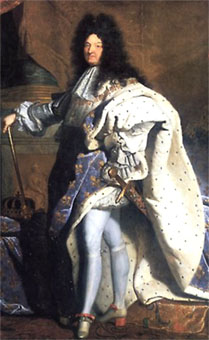Browse "Courts"
-
Article
Keegstra Case
Jim Keegstra was a secondary school teacher in rural Alberta who taught anti-Semitic propaganda to his students. He was charged with a hate crime in 1984 and was found guilty in 1985. However, Keegstra launched repeated appeals arguing that the Criminal Code violated his constitutionally guaranteed freedom of expression. The landmark case (R. v. Keegstra) tested the balance between the right to freedom of speech outlined in the Canadian Charter of Rights and Freedoms and the law’s limits on hate speech stipulated in the Criminal Code. The case came before the Supreme Court of Canada in 1990 and 1996. The Court ultimately ruled against Keegstra by deciding that Canada’s hate laws imposed a “reasonable limit” on a person’s freedom of expression.
"https://d2ttikhf7xbzbs.cloudfront.net/media/media/c813762a-d4db-4a05-b769-18eb4e9b7957.jpg" // resources/views/front/categories/view.blade.php
https://d2ttikhf7xbzbs.cloudfront.net/media/media/c813762a-d4db-4a05-b769-18eb4e9b7957.jpg
-
Article
Marshall Inquiry
The Marshall Inquiry was a Royal Commission called by the Government of Nova Scotia. It investigated the 1971 wrongful murder conviction of Mi’kmaq man Donald Marshall Jr. of Nova Scotia. This was the first inquiry of its kind in Canada. The commission released its report on 26 January 1990. It made recommendations that changed the criminal justice system in Nova Scotia, particularly in its treatment of Indigenous peoples.
"https://d2ttikhf7xbzbs.cloudfront.net/media/media/a5a37c90-f350-403f-b8fd-d2b40c0520a9.jpg" // resources/views/front/categories/view.blade.php
https://d2ttikhf7xbzbs.cloudfront.net/media/media/a5a37c90-f350-403f-b8fd-d2b40c0520a9.jpg
-
"https://development.thecanadianencyclopedia.ca/images/tce_placeholder.jpg?v=e9dca980c9bdb3aa11e832e7ea94f5d9" // resources/views/front/categories/view.blade.php
https://development.thecanadianencyclopedia.ca/images/tce_placeholder.jpg?v=e9dca980c9bdb3aa11e832e7ea94f5d9
-
Article
Open Courts and Publication Bans
Canada inherited the open court tradition of Great Britain. The open court serves many functions. It ensures that all are treated equally before the law. It acts as an incentive for all involved in the process to do their best.
"https://development.thecanadianencyclopedia.ca/images/tce_placeholder.jpg?v=e9dca980c9bdb3aa11e832e7ea94f5d9" // resources/views/front/categories/view.blade.php
https://development.thecanadianencyclopedia.ca/images/tce_placeholder.jpg?v=e9dca980c9bdb3aa11e832e7ea94f5d9
-
Article
Persons Case (Plain-Language Summary)
The Persons Case was a constitutional ruling. It established the right of women to serve in the Senate. The case was started by the Famous Five. They were a group of women activists. In 1928, they objected to a Supreme Court of Canada ruling that women were not “persons.” As such, they were not allowed to serve in the Senate. The Famous Five challenged the law. In 1929, the decision was reversed. As a result, women were legally recognized as “persons.” They could no longer be denied rights based on a narrow reading of the law. (This article is a plain-language summary of the Persons Case. If you are interested in reading about this topic in more depth, please see the full-length entry.)
"https://d2ttikhf7xbzbs.cloudfront.net/media/media/65699b89-06c0-4518-aa06-4eea43f2ec74.jpg" // resources/views/front/categories/view.blade.php
https://d2ttikhf7xbzbs.cloudfront.net/media/media/65699b89-06c0-4518-aa06-4eea43f2ec74.jpg
-
Article
Small Claims Court
Small Claims Court, the common name of courts established by provincial legislation for civil matters involving small sums of money. In Québec, the upper limit of the small claims court is $7 000, but in the other provinces it is $1000, $2000 or $3000.
"https://development.thecanadianencyclopedia.ca/images/tce_placeholder.jpg?v=e9dca980c9bdb3aa11e832e7ea94f5d9" // resources/views/front/categories/view.blade.php
https://development.thecanadianencyclopedia.ca/images/tce_placeholder.jpg?v=e9dca980c9bdb3aa11e832e7ea94f5d9
-
Article
Sovereign Council
The council initially comprised the governor, the bishop, the INTENDANT and 5 councillors. In 1703 membership grew to 12, to which 4 associated judges were added in 1742. Members, usually recruited from the French gentry, were nominated initially by the governor and the bishop and later by the king.
"https://d2ttikhf7xbzbs.cloudfront.net/media/media/f8cf074d-4ef8-4e3c-bdba-fb5451668052.jpg" // resources/views/front/categories/view.blade.php
https://d2ttikhf7xbzbs.cloudfront.net/media/media/f8cf074d-4ef8-4e3c-bdba-fb5451668052.jpg
-
Article
Stare Decisis
Stare decisis [Latin, "let the decision stand"] refers to the doctrine of precedent, according to which the rules formulated by judges in earlier decisions are to be similarly applied in later cases.
"https://development.thecanadianencyclopedia.ca/images/tce_placeholder.jpg?v=e9dca980c9bdb3aa11e832e7ea94f5d9" // resources/views/front/categories/view.blade.php
https://development.thecanadianencyclopedia.ca/images/tce_placeholder.jpg?v=e9dca980c9bdb3aa11e832e7ea94f5d9
-
Macleans
Supreme Court Breaks New Ground
Supreme Court Breaks New Ground Two years ago, the federal government asked the Supreme Court for its opinion in three areas: Can Quebec secede unilaterally from Canada under the Constitution? Does it have the right to secede unilaterally under international law? Does international law include a right to self-determination that would permit secession? If there is a conflict between Canadian and international law, which takes precedence? In a four-day hearing last February, 16 parties, including...
"https://development.thecanadianencyclopedia.ca/images/tce_placeholder.jpg?v=e9dca980c9bdb3aa11e832e7ea94f5d9" // resources/views/front/categories/view.blade.php
https://development.thecanadianencyclopedia.ca/images/tce_placeholder.jpg?v=e9dca980c9bdb3aa11e832e7ea94f5d9
-
Article
Supreme Court of Canada
The Supreme Court of Canada is the highest court in Canada’s judicial system. It has jurisdiction over federal and provincial laws. Founded in 1875, the Court was at first subject to being overruled by the Judicial Committee of the Privy Council in Great Britain. The Supreme Court has had the final judicial say on legal and social issues in Canada since 1949. The Supreme Court bench is comprised of nine judges including the Chief Justice of Canada, currently Richard Wagner. At least three justices must be from Quebec. All judges are nominated by the prime minister and appointed by the governor-in-council (the governor general and the Cabinet).
"https://d2ttikhf7xbzbs.cloudfront.net/media/media/c813762a-d4db-4a05-b769-18eb4e9b7957.jpg" // resources/views/front/categories/view.blade.php
https://d2ttikhf7xbzbs.cloudfront.net/media/media/c813762a-d4db-4a05-b769-18eb4e9b7957.jpg
-
Macleans
Supreme Court Redefines Family
Rebecca Hunter and her partner of 6 ½ years, Debra Lamb, were making their way through rush-hour traffic on a busy Toronto expressway last Thursday when they heard the report over the car radio.This article was originally published in Maclean's Magazine on May 31, 1999
"https://development.thecanadianencyclopedia.ca/images/tce_placeholder.jpg?v=e9dca980c9bdb3aa11e832e7ea94f5d9" // resources/views/front/categories/view.blade.php
https://development.thecanadianencyclopedia.ca/images/tce_placeholder.jpg?v=e9dca980c9bdb3aa11e832e7ea94f5d9
-
Article
Tax Court of Canada
Tax Court of Canada, established 1983, is an independent body under the federal minister of justice. Its objective is to provide an easily accessible tribunal for the disposition of disputes between taxpayers and the minister of national revenue.
"https://development.thecanadianencyclopedia.ca/images/tce_placeholder.jpg?v=e9dca980c9bdb3aa11e832e7ea94f5d9" // resources/views/front/categories/view.blade.php
https://development.thecanadianencyclopedia.ca/images/tce_placeholder.jpg?v=e9dca980c9bdb3aa11e832e7ea94f5d9
-
Macleans
Truscott's Quest for Vindication Continues
This article was originally published in Maclean’s magazine on November 8, 2004. Partner content is not updated. Once a 14-year-old boy on death row, Steven Truscott was for the longest time Canada's poster case for the abolition of capital punishment. His 1959 conviction for the rape and strangulation of grade-school friend Lynne Harper, 12, shocked and divided Canadians for decades.
"https://development.thecanadianencyclopedia.ca/images/tce_placeholder.jpg?v=e9dca980c9bdb3aa11e832e7ea94f5d9" // resources/views/front/categories/view.blade.php
https://development.thecanadianencyclopedia.ca/images/tce_placeholder.jpg?v=e9dca980c9bdb3aa11e832e7ea94f5d9
-
Article
Ultra Vires-Intra Vires
Ultra Vires-Intra Vires Ultra vires [Lat, "beyond the powers"] is used in CONSTITUTIONAL LAW by the courts who must decide the respective competences of Parliament and provincial legislatures.
"https://development.thecanadianencyclopedia.ca/images/tce_placeholder.jpg?v=e9dca980c9bdb3aa11e832e7ea94f5d9" // resources/views/front/categories/view.blade.php
https://development.thecanadianencyclopedia.ca/images/tce_placeholder.jpg?v=e9dca980c9bdb3aa11e832e7ea94f5d9
